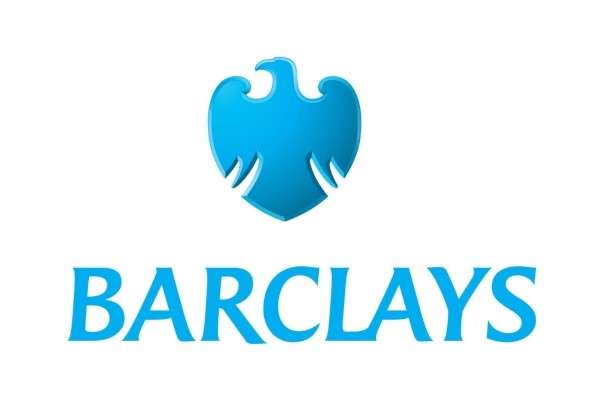
Car Finance
Voluntary termination of car finance is one of the most commonly misunderstood aspects of PCP finance agreements and HP.
Are you unsure of what legal rights you have when it comes to your car finance agreement? Have you heard of voluntary termination but don’t quite understand what it means or how to do it?
Don’t worry; we’ve put together an in-depth guide to voluntary termination of car finance which explains your rights for ending your agreement early. We will describe the different types of car finance, what voluntary termination (VT) is, how it may affect your future financial opportunities and how you can use it to cancel your current car finance agreement.
Search for a Company to begin a Claim
PCP Car Finance Explained
It can often seem like car salespeople are far more interested in what monthly budget you have than the type of car you want. The most popular form of car finance (where you pay monthly payments) in the UK market is personal contract purchase (PCP). Personal contract purchases are pushed considerably hard by car dealerships.
What is PCP?
More often than not, someone who finances a car at the dealership will be entering into a finance agreement called a PCP (personal contract purchase). A PCP is a type of hire purchase (HP) finance agreement and ultimately means that the finance company remains the owner of the vehicle until you have paid off every penny.
With PCP you are typically required to pay a deposit in the beginning, followed by monthly payments. Once you have finished these monthly repayments, you will have two options:
- If you want to own the car outright, you must pay a “balloon payment.”
- If you don’t want to own the vehicle, you can hand the car back and (in most cases) start a new PCP agreement
Most PCP contracts last from anywhere between 18 to 48 months, with the most common period being 36 months. However, more recently dealers have been swaying customers toward the 48-month length more often.
Longer repayment terms will result in lower monthly payments, which in turn also affects the sum of the final balloon payment at the end. Payments are taken via direct debit straight from your bank account.
What’s most concerning is that, according to research, a large percentage of men (88%) and women (75%) couldn’t explain what a PCP even was!
What makes PCP attractive to consumers?
When financing a vehicle with either PCP or HP, the amount of money being borrowed will be similar. However, the main difference with a PCP lies in the scale of the monthly payments and then the end lump sum (balloon payment) at the end of the contract. This means with a PCP:
- You will have lower monthly payments, and/or
- The deposit at the start will be much smaller, and/or
- The length of the repayment term will be shorter
It’s quite common for people to change their cars once every three or four years. Most people also only have a relatively small amount of money available to pay a deposit at the beginning of the agreement. Because of this, a PCP is more appealing as the monthly payments are generally lower than with a Hire Purchase.
The biggest pitfall of a PCP is at the end of the agreement. The buyer has to settle the outstanding debt (the balloon payment); otherwise, there will be financial consequences.
What makes PCP beneficial to car manufacturers?
There are two strong benefits to personal contract purchase for car dealers and manufacturers:
- Their cars are more readily available to customers as the monthly repayments on a PCP are generally more affordable
- It’s unlikely that most customers can pay off the balloon amount, meaning they are usually forced into taking out another PCP on another car. This means the car manufacturer or dealer can secure repeat business quite easily
What is a Voluntary Termination?
As a borrower, you have the legal right to cancel your car finance agreement early in certain circumstances. This is known as Voluntary termination (VT), and car dealers will often gloss over this right or explain it poorly since it ultimately doesn’t favour their business.
During a car finance agreement it’s likely that someone’s personal and financial circumstances will change, meaning they are unable to make the correct monthly payments. This could be unemployment or other unforeseen circumstances that will cause you to struggle to pay your monthly car finance payments.
You may be eligible for voluntary termination of your car finance contract depending on your circumstances. What’s even better is that there are no penalties or additional fees.
What are your legal rights?
Under UK Law (Consumer Credit Act 1974, Section 99) you have the right to terminate a regulated PCP or HP agreement voluntarily. The documentation of your specific contract should detail these rights.
This law is in place to protect buyers who can no longer afford to pay their monthly agreement fares. It also offers protection to the finance companies, to prevent borrowers from walking away whenever they please, by setting a minimum repayment amount of 50% of the total amount payable.
How does Voluntary Termination Work?
You can cancel your finance agreement and return your car if you:
- Repay 50% of the Total Amount Payable (this isn’t just the amount borrowed as it includes fees and interest rates as well as the Balloon Payment)
- Have taken reasonable care of the vehicle. This depends on your particular agreement but may consist of dents or scratches and making the car road legal (including MOT)
The Total Amount Payable and the termination amount have to be shown on your car finance contract legally. The termination amount is the amount to pay before you can utilise voluntary termination of a HP or PCP.
Whether you purchased your car in a new or used condition doesn’t matter; the law is the same for both.
If you have followed the above points, you won’t have to pay extra fees or charges, and you can end your PCP early.
What if I haven’t paid off 50% of the total amount?
As the total amount payable includes the balloon payment, it’s unlikely that you will have paid off 50% of the finance agreement by the time you reach the mid-way point of your repayment schedule and are looking to initiate voluntary termination.
If you haven’t paid off 50% of the Total Amount Payable, there is still an option for you to end your finance agreement early by paying off the difference. For example, if you have already paid back £10,000 and the total amount is £30,000 – you can pay an extra £5,000 to reach the 50% mark.
If you have paid more than 50% of the Total Amount Payable, then you can cancel your PCP agreement early. However, please note you won’t receive a refund for any amount paid over the 50%.
What is HP finance?
Hire purchase (HP) is similar to PCP and is another popular form of the car finance agreement.
HP agreements typically involve an initial deposit (commonly 10%) followed by monthly payments.
Once you have finished your monthly payments, the ownership of the car is then transferred to you. Unlike PCP there is no balloon payment to be made to take ownership of the vehicle.
Another difference is that HP is a type of secured loan. The car that you are buying is security, meaning that if you don’t keep up with your monthly payments, the vehicle can be taken away from you.
Can I end my Hire Purchase (HP) agreement early?
Much like PCP, you can terminate your Hire Purchase agreement early too.
You must have repaid 50% of the total finance amount before you can terminate your agreement early. With HP it’s more likely that you will have reached the 50% mark around halfway through your finance agreement.
Like PCP, it’s usually required that you have kept the vehicle in good condition you can make up the difference if you haven’t reached the 50% mark, and then cancel the agreement.
Can I be charged for excess mileage?
The value of a used car is linked to its mileage. Your monthly payments and the final balloon payment are also based on the mileage of the vehicle. So if you file for Voluntary Termination for a car that has done more miles than expected, the finance company will be losing out on even more money.
Despite excess mileage not being enforceable nor included within the law, finance companies will threaten you for payment of an excess mileage penalty. Unfortunately, in most cases, customers will pay up after they have received letters from legal firms.
The matter of fact is that finance companies won’t take you to court for excess mileage on a PCP. The legal letters and forms that get sent to you will be empty threats in the hopes of bullying you into making payments. Just be polite and stand your ground.
Will voluntary termination affect my credit score?
It may be that voluntary termination will appear on your credit history, although it won’t affect your credit rating and it’s unlikely that it will negatively impact your chances to get finance in the future. You are only exercising your legal right to cancel your finance agreement early.
The termination of the agreement will be noted on your record, but there won’t be any details of why it was terminated. If a car manufacturer or dealer tells you otherwise, they are merely trying to scare you into backing out of the voluntary termination.
If you are struggling to pay your car finance payments, it can become tempting to stop paying. However, if you fall into arrears, then it’s likely that your credit score will be affected negatively. A poor credit score can make it more difficult for you to get finance or a credit card in the long term and you may be charged high interest rates and APR charges.
Whilst not directly related to your credit score, if you use VT to return cars regularly, it may cause lenders to be hesitant to accept you for finance in the future. This is because it can cost the finance company money to take a car back.
Voluntary Termination – where to begin?
Firstly you should be sure what type of agreement you have, whether it is PCP, HP or PCH leasing. Handing back lease cars early is far more difficult and can result in mounting penalties and fees. Typically lease agreements do not include the same flexibilities that are built into PCP and HP agreements. Early Termination can be included in PCP however it is entirely at the discretion of the lender.
If you are sure you have a PCP or HP, then Voluntary Termination is a viable option. However, you should know that in general car manufacturers and finance companies don’t like voluntary termination. With that being said, you should expect that they will drag the process out as long as possible and will seem reluctant to help you. This is because until the agreement is terminated, they can continue to charge you.
The reasonable care clause is also very vague in most cases, stating that there must be no “damages if you have failed to take reasonable care of the goods (over and above normal wear and tear)”. This means that finance companies will try to get money from you and will often charge for small damages and excess mileage.
Finance companies will try to use threatening letters and hefty invoices for minor damages and excess mileage. These letters will typically include legal jargon and lengthy forms to try and scare you into paying these additional charges. To combat this, it’s important to keep a good log of the condition of your car with photographs that prove it is in ‘reasonable’ condition.
If you have missed any payments before attempting to terminate your finance agreement, some financers will also refuse to allow the VT.
You should always look to plan your voluntary termination ahead of time. Make sure to pay your monthly bills on time until you have legitimately reached the termination amount. You will want to be in a position of strength when looking to cancel your finance contract.
If you are ready to begin the process, start by constructing a letter to your finance company. Be sure to make it clear that you are exercising your legal right to voluntarily terminate your finance agreement as outlined in your contract and the Consumer Credit Act 1974.
You do not want to give the finance company a chance to misconstrue the termination as a voluntary surrender. This is the worst case scenario and will result in you giving back the car but still owing additional costs and fees. The finance company will re-sell the car at an auction and then chase you for whatever money they believe you still owe – even though you have returned the car already.
You do not have to sign any other documentation or forms. Once you have sent your letter, preferably by recorded delivery postage, don’t fall into the trap of signing any voluntary termination packs that the finance company may send you. They are just trying to get you to sign away your legal rights.
Should you file for Voluntary Termination?
The most common reasons for people to use Voluntary Termination of car finance is because:
- They’re struggling to keep up with monthly repayments because of a change in their circumstances
- They can reduce their monthly costs by cancelling the contract and buying a car in a different way
- They don’t need the car any more
Trying to terminate your finance agreement early merely because you can’t be bothered to repay is not a good route to follow.
It’s also common for people to return the car and end the finance agreement early because the vehicle has depreciated, and their remaining payments would mean they have paid more than the car is worth.
You should only look to take our finance on a car if you are sure you will be comfortable in paying it off. If you don’t think you’ll be able to afford your monthly repayments as well as your other financial commitments, don’t take out finance.
However, if you are confident that you can repay at the time of taking out finance and your circumstances then change, you do have an option to terminate the agreement and walk away after paying back 50%.
If it becomes ubiquitous for people to terminate PCP and HP early just because they can, then inevitably the cost of finance will increase quite dramatically. If people abuse the system, then it may even be the case that the government will amend the law to remove termination rights entirely.
Top Complaints:
Quick Complaint Form
All companies in this category






